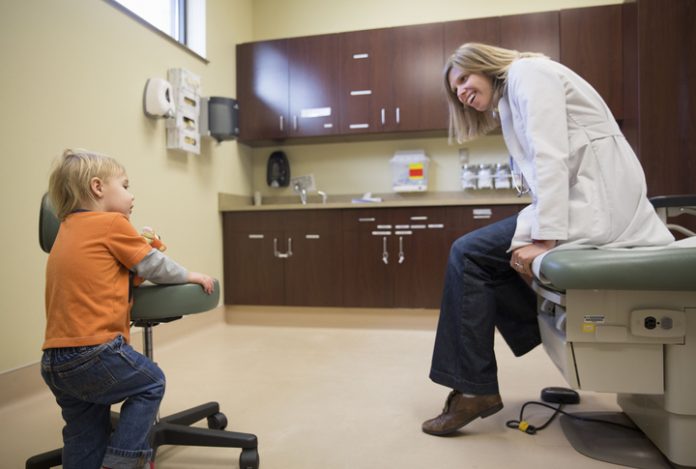Two years into the pandemic, the Centers for Disease Control and Prevention (CDC) has changed its early childhood development milestones, the guidelines for identifying delayed development.
The milestones were previously based on the developmental progress 50 percent of children could achieve. In February, the CDC updated the milestones to reflect the capabilities of 75 percent of children.
The change signals parents and doctors to not investigate possible developmental problems unless a child is in the bottom 25 percent. Previously, performing in the bottom half of all children would have called for closer observation of the child.
Previously, for example, the milestones stated a 24-month-old child should be able to say approximately 50 words. The new milestone raised that age to 30 months. While some milestones were eliminated or moved to younger ages, 67.7 percent of retained milestones were moved to older ages.
CDC Explains Change
The CDC says focusing on the 25 percent who lag behind the most will improve detection of developmental delays. An article in Pediatrics, which the CDC says prompted the change in milestones, found the 50 percent standard might have encouraged a “wait-and-see” approach that led to late detection of abnormalities.
The CDC says the new milestone changes are not intended to lower the bar to measure child development. Studies have found negative impacts on infant and child development from environmental changes during the pandemic.
Wearing masks around infants and small children could have a “long-term impact on neonatal development,” a discussion paper published on the National Library of Medicine website on October 29, 2020, concluded.
“COVID-19 has changed the way that newborn babies are cared for within the neonatal setting due to the introduction of social distancing and wearing of face masks to limit the spread of infection,” wrote Janet Green, Lynette Staff, Patricia Bromley, Linda Jones, and Julia Petty. “Potential implications exist related to the normal development of bonding and connections to others.”
What Damage Was Done?
Robert Emmons, M.D., a Vermont private psychiatrist and clinical ethics advocate, says uncertainty about pandemic public health guidance is here to stay.
“Public health officials would dearly like to believe that the guidance is effective in saving lives and reducing morbidity,” Emmons said. “The way it goes with science, though, we won’t really know the answers for years.”
The new milestones are appalling, says Marilyn M. Singleton, M.D., J.D., a board-certified anesthesiologist, a member of the Association of American Physicians and Surgeons, who has written extensively on pandemic policies.
“Is this like not giving students Ds or Fs or eliminating SAT testing for college admission?” said Singleton. “Changing the childhood developmental milestones is another example of lowering the bar to accommodate a problem rather than working on the root of the problem. It is also an example of changing a parameter in such a way that creates confusion.
“The previous milestone was 50 percent of children can say 50 words at 24 months; the revised milestone is 75 percent of children can say 50 words at 30 months,” said Singleton. “I’m only a mother, not a speech pathologist. Changing the standard does not account for the exponential rise in the number of spoken words once a child starts speaking. Isolation and masking during flawed COVID policies have left their mark on children. The government should assist parents in fixing the problem, not covering it up.”
Harry Painter (harry@harrypainter.com, @TheHarryPainter) writes from Tulsa, Oklahoma.
Internet info:
“Important Milestones: Your Baby by Thirty Months,” Centers for Disease Control and Prevention, February 17, 2022: https://www.cdc.gov/ncbddd/actearly/milestones/milestones-30mo.html
Jennifer M. Zubler, M.D., et. al., “Evidence-Informed Milestones for Developmental Surveillance Tools,” Pediatrics, February 8, 2022: https://publications.aap.org/pediatrics/article/149/3/e2021052138/184748/Evidence-Informed-Milestones-for-Developmental





















